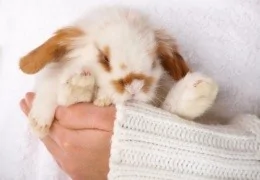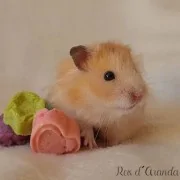The Tornjak originated from genetically homogeneous, almost extinct, indigenous shepherd dogs. These dogs have...
THE SOCIABILITY OF HOUSE MICE: AFFECTIONATE AND SOCIAL
SOCIABILITY OF THE HOUSE MOUSE
House mice are known not only for their small size and curious nature, but also for their remarkable sociability. These rodents can be affectionate and social companions, making them excellent pets for those seeking active interaction with a companion animal. In this article, we will explore the sociability of house mice and how to cultivate and enjoy a close relationship with these charming creatures.
1. SOCIAL NATURE:
House mice are highly social animals that enjoy the company of other members of their species. In the wild, they live in groups and form strong bonds with their group mates. As pets, they also crave social interaction and can become solitary if kept in isolation.
2. INTERACTION WITH HUMANS:
In addition to their sociability with other mice, house mice can establish emotional connections with their human caretakers. With time and patience, mice can gain confidence and enjoy human companionship. Feeding them by hand, talking gently to them, and allowing them to explore and play in a safe environment will foster a close bond between you and your mouse.
3. PLAY BEHAVIOUR:
House mice are playful creatures and love to explore and engage in fun activities. Providing them with interactive toys, such as tunnels, exercise wheels and puzzles, stimulates their minds and promotes an enriching environment. You can also have fun interacting with them with interactive toys, such as feather wands or small balls, to encourage their activity and stimulate their sociability.
4. GROUP PARENTING:
If you want to fully enjoy the sociability of house mice, consider keeping several mice together in a compatible group (always of the same sex, we will not mix males and females). Mice are naturally social animals and benefit greatly from the company of others of their species. It is always advisable to research the dynamics of groups of mice and ensure that there is enough space and resources for everyone in the shared habitat.
5. EMOTIONAL SENSITIVITY:
Although house mice can be sociable animals, they are also sensitive beings. It is important to handle them with care and provide them with a calm and safe environment. Avoid sudden movements and loud noises that may frighten them. By creating a calm, stress-free environment, you will increase their confidence level and encourage sociable behaviour.
6. SPECIAL CASES:
In some cases we may encounter male mice that are very territorial or aggressive towards their conspecifics. If, despite efforts to improve coexistence, these particular specimens show no signs of improvement, it is preferable that they live in an individual habitat; it is not the best thing to do considering their social nature, but it is the most responsible thing to do as we will avoid unnecessary fights, injuries and deaths.
MICE SHOULD ALWAYS LIVE IN GROUPS OF THE SAME SEX.
In the wild, this is not the case (as you would expect), but when it comes to pets, responsibility is paramount. When we have more than one animal whose castration is much more complex and whose reproductive cycles cannot be easily controlled (in dogs it is quite simple), their correct sexing prior to purchase is essential.
In most conventional shops or those individuals who breed only for economic reasons (not for passion) the sexing of animals and their segregation to avoid unwanted litters is completely neglected. Many of these animals end up suffering fights, unwanted mating (at too young an age and at very short intervals of time, which damages the health of the female) and, in the end, is acquired by someone who does not know how, breeds at home and that person is faced with the task of bringing out a litter that he/she never looked for and looking for a home for them.
Breeding animals should only be left to ethical breeding professionals, and by "professionals" we do not mean those who have a zoological nucleus (a requirement at the time of writing this article, which sometimes does not refer to true professionalism), but to those people who study, learn and invest in the welfare of their animals, not as a source of income, but as a passion.
The biggest problem of not sexing and having several mice together is just that: irresponsible litters, litters that you don't know who they come from (father and mother), litters that may come from a completely uncontrolled inbred line (we will talk more about this in the article "Types of breeding methods: Outbreeding, Linebreeding and Inbreeding") which ends up triggering health problems (physical, mental or both), females with shorter life spans when breeding without any rest between births, overpopulation (ending in fighting and cannibalism). .. And, in many other occasions: abandonment by an inexperienced, saturated and lost owner.
CONCLUSION
House mice are surprisingly sociable animals and can form emotional bonds with both other mice (always of the same sex) and their human caretakers. By providing them with a nurturing environment and spending time interacting and playing with them, you can enjoy a close and loving relationship with these small rodents. Remember to be patient and understanding as you approach them, as each mouse has its own unique personality. Over time, you will cultivate a special bond with your mouse and enjoy their affectionate and fun companionship.
Leave a comment
Log in to post comments
















